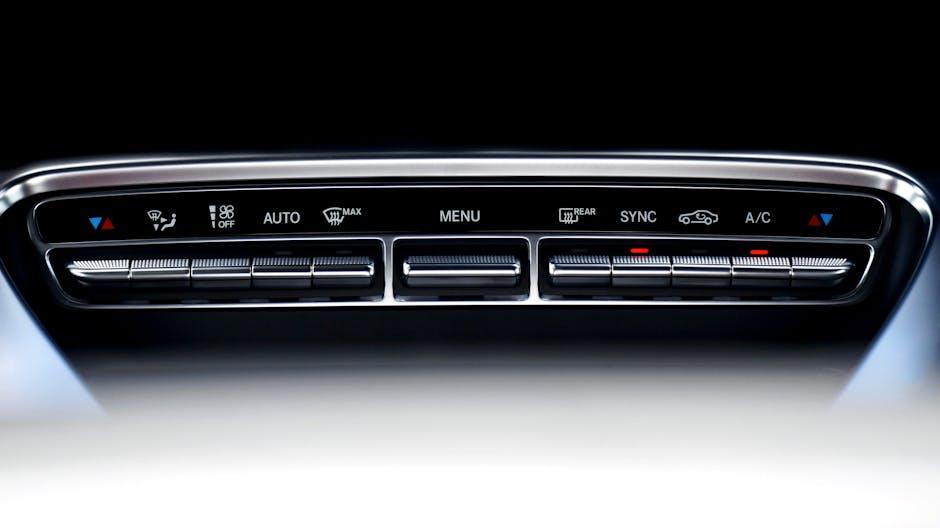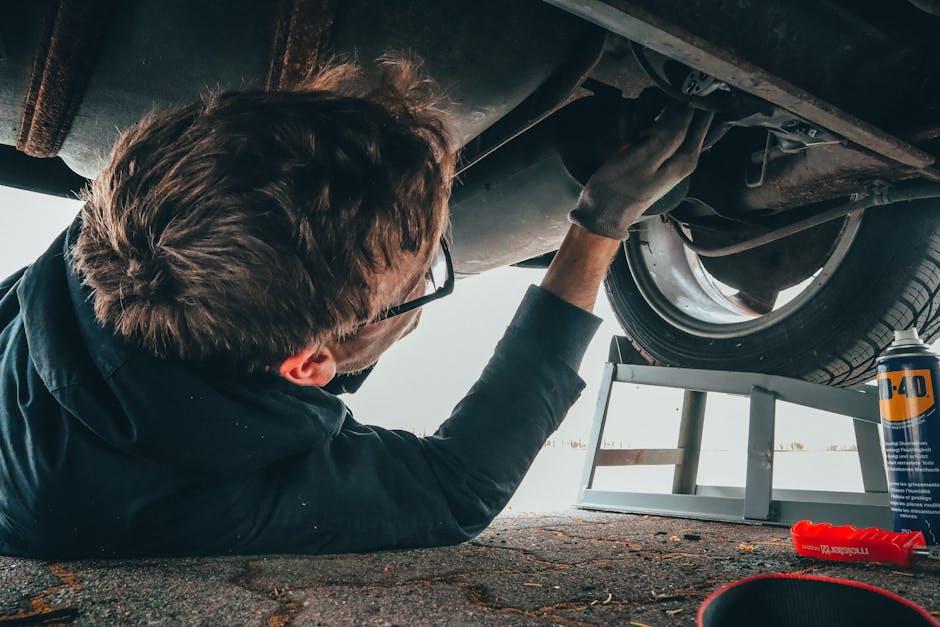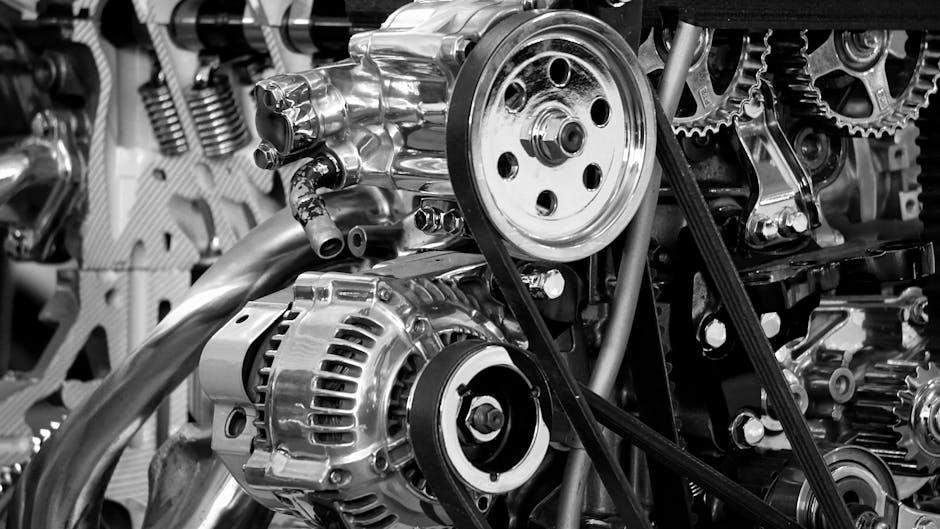When the summer heat turns your daily drive into an endurance test, a malfunctioning car AC can quickly shift from a minor annoyance to a major headache. Understanding the cost of car AC repair is essential not only for budgeting but also for making informed decisions when your cooling system falters. From simple fixes to more complex overhauls, the price tag can vary widely depending on the issue at hand. In this article, we’ll break down what you can expect to pay, helping you cool down without burning a hole in your wallet.
Table of Contents
- Understanding Common Car AC Problems and Their Impact on Repair Costs
- Factors That Influence the Price of Car AC Repair Services
- Evaluating Whether to Repair or Replace Your Car’s AC System
- DIY Maintenance Tips to Extend the Life of Your Car AC
- Choosing the Right Professional for Affordable and Reliable AC Repairs
- Budgeting Smartly for Unexpected Car AC Repair Expenses
- Q&A
- To Wrap It Up

Understanding Common Car AC Problems and Their Impact on Repair Costs
When your car’s air conditioning system falters, it’s often due to a handful of common issues that can dramatically influence repair costs. Leaks in the refrigerant lines, a malfunctioning compressor, or a clogged condenser are among the usual suspects. Each of these problems varies in complexity and the required parts, which directly impacts your final bill. For instance, while recharging refrigerant might be relatively inexpensive, replacing a compressor can set you back significantly more. Understanding what’s wrong helps in anticipating both the labor involved and the parts needed, making the repair process more transparent and less daunting.
Several key issues tend to drive the cost of car AC repair:
- Refrigerant Leaks – Often caused by wear and tear or corrosion, these lead to insufficient cooling.
- Compressor Failure – A critical and costly component that pressurizes refrigerant and circulates it through the system.
- Electrical Problems – Faulty wiring or sensors can disrupt system operations and require diagnostic checks.
- Condenser Damage – Usually from debris or accidents, requiring part replacement and added labor.
| Problem | Estimated Repair Cost | Repair Time |
|---|---|---|
| Refrigerant Recharge | $100 – $250 | 1 – 2 hours |
| Compressor Replacement | $500 – $1,200 | 3 – 5 hours |
| Electrical Diagnosis & Repair | $150 – $400 | 1 – 3 hours |
| Condenser Replacement | $300 – $650 | 2 – 4 hours |

Factors That Influence the Price of Car AC Repair Services
When you take your vehicle in for air conditioning repairs, several elements come into play that can influence the final bill. These factors range from the complexity of the issue to the make and model of your car. For instance, luxury or imported vehicles often have higher repair costs due to specialized parts and expertise required. Additionally, the severity of the fault, whether it’s a simple refrigerant refill or a complete compressor overhaul, significantly impacts the price. Not to forget, labor charges vary depending on the service center’s location and reputation, where urban areas generally command higher fees than rural workshops.
The type and quality of replacement parts also play a crucial role, often dictating whether the repair falls into a budget-friendly or premium category. Utilizing original equipment manufacturer (OEM) parts can provide peace of mind but might increase the service cost, whereas aftermarket parts may offer savings but pose reliability concerns. Below is a brief overview of some common variables affecting car AC repair pricing:
- Vehicle Make and Model: Parts availability and service complexity
- Type of Repair Needed: From minor leak fixes to major component replacements
- Labor Costs: Based on technician expertise and workshop location
- Parts Used: OEM vs. aftermarket options
- Diagnostic Fees: Initial system evaluation before repairs
| Factor | Typical Impact on Cost |
|---|---|
| Vehicle Type | Moderate to High |
| Part Quality | Low to High |
| Labor Charges | Variable |
| Repair Extent | Low to Very High |
| Diagnostic Fees | Low |

Evaluating Whether to Repair or Replace Your Car’s AC System
Deciding whether to repair or replace your car’s AC system hinges on several critical factors. First, consider the age and condition of your vehicle; older models may benefit more from a repair if the issue is minor, whereas newer cars with recurrent problems might warrant a full replacement to ensure long-term reliability. Additionally, assess the extent of the damage—a simple refrigerant recharge or a compressor fix can be cost-effective, while replacing the entire system, including the evaporator and condenser, might be necessary if multiple components have failed.
Another valuable approach is to weigh the cost versus benefit of each option. Here’s a quick snapshot to guide your decision:
| Repair Option | Typical Cost Range | When to Choose |
|---|---|---|
| Refrigerant Recharge | $100 – $150 | Minor leaks, low refrigerant levels |
| Compressor Replacement | $500 – $1,200 | Compressor failure, system not cooling |
| Full System Replacement | $1,500 – $4,000+ | Multiple component failures, older systems |
In making your decision, also factor in your car’s overall maintenance history and usage frequency. If you tend to keep your vehicle for many years, investing in a complete replacement might pay off with greater comfort and fewer future repairs. Conversely, if you’re planning to upgrade vehicles soon, a modest repair could be the smarter, cost-conscious choice. Ultimately, consulting a trusted mechanic to diagnose specific issues and provide an estimate will help tailor the best path forward for your situation.

DIY Maintenance Tips to Extend the Life of Your Car AC
Regular upkeep of your car’s air conditioning system can dramatically reduce the chances of costly repairs down the line. Start by changing your cabin air filter every 12,000 to 15,000 miles to ensure clean airflow and prevent strain on the AC unit. Simple habits like running the AC for 10 minutes once a week during colder months also keep the system lubricated and functional, avoiding dryness or gasket cracks. Additionally, check for visible leaks or unusual noises, which can be early indicators of refrigerant loss or compressor trouble.
Don’t underestimate the power of visual and mechanical inspections you can perform yourself. Monitor your coolant levels regularly and clear debris around condenser fins to maximize efficiency. Below is a handy checklist to keep your vehicle’s AC in prime condition:
- Inspect belts and hoses for cracks or wear every 6 months
- Clean condenser coils with water and a soft brush to enhance airflow
- Park in shaded areas to reduce heat load on the AC system
- Use recirculation mode wisely to maintain interior cooling and save fuel

Choosing the Right Professional for Affordable and Reliable AC Repairs
When it comes to getting your car’s AC fixed without emptying your wallet, it’s crucial to look beyond just price tags. Expertise, certifications, and customer reviews are your best indicators of quality service. A skilled technician not only diagnoses the root cause efficiently but also prevents recurring issues, saving you money in the long run. Always check if the professional offers a warranty, which is a strong sign of their confidence in the repair work.
Here’s what to keep in mind when selecting a repair service:
- Experience: Longer history means refined skills and problem-solving capabilities.
- Certifications: Official credentials show updated knowledge of the latest AC technology.
- Transparent Pricing: Clear, upfront cost estimation avoids surprises.
- Customer Feedback: Real reviews can reveal reliability and service quality.
| Criteria | Why It Matters | What to Ask |
|---|---|---|
| Experience | Better diagnoses and repairs | How many years have you been repairing car ACs? |
| Certification | Ensures proper handling of refrigerants | Are you certified to work with automotive AC systems? |
| Pricing | Prevents unexpected costs | Can you provide a detailed written estimate? |
| Warranty | Guarantees repair quality | What is the warranty period on repairs? |

Budgeting Smartly for Unexpected Car AC Repair Expenses
When your car’s AC unexpectedly quits on a hot day, the shock can hit your wallet just as hard as the lack of cool air hits your comfort. To smartly handle these surprise expenses, start by creating a dedicated emergency fund specifically for automotive repairs. Even setting aside a modest amount monthly can cushion the blow when repair bills arrive. Additionally, consider prioritizing repairs based on urgency to avoid unnecessary splurges on non-critical components. Breaking down the potential costs ahead of time helps you avoid stress and make informed decisions, allowing for better financial control.
- Set aside a small, consistent savings: Even $20 a month can grow substantially over time.
- Research local repair costs: Knowing average prices helps you spot overpriced quotes.
- Prioritize repairs: Address cooling system faults critical to vehicle operation before cosmetic fixes.
- Explore warranty options and insurance coverage: Some plans may help partially offset repair costs.
| Repair Type | Estimated Cost Range | Urgency Level |
|---|---|---|
| Refrigerant Recharge | $100 – $250 | Medium |
| Compressor Replacement | $400 – $900 | High |
| Condenser Repair/Replacement | $200 – $600 | High |
| Thermostat or Control Panel Fix | $150 – $350 | Low |
Q&A
Q1: Why is my car’s AC suddenly blowing warm air?
A: Several factors could be at play, including low refrigerant levels, a leaking compressor, a faulty condenser, or electrical issues. It’s best to have a professional diagnose the exact cause to avoid unnecessary repairs.
Q2: How much does a typical car AC repair cost?
A: Costs vary widely depending on the issue, but expect to pay anywhere from $150 for a simple refrigerant recharge to over $1,000 for major component replacements like the compressor or condenser.
Q3: What are the most common expenses involved in AC repair?
A: The biggest costs usually involve parts—compressors, condensers, and evaporators—and labor. Refrigerant top-ups and leak repairs tend to be less expensive but might need to be done more frequently.
Q4: Can I save money by recharging the refrigerant myself?
A: While DIY refrigerant kits are available, improper handling can cause damage or be unsafe. It’s generally safer and more effective to have a certified technician perform the recharge and check for leaks.
Q5: How can I prevent costly AC repairs?
A: Regular system maintenance is key: use your AC routinely, check for unusual smells or noises, replace cabin air filters, and have annual inspections to catch issues early before they escalate.
Q6: Does the age and make of my car affect AC repair costs?
A: Yes. Older or luxury vehicles often require pricier parts and specialized labor, which can drive repair costs higher compared to more common, newer models.
Q7: Is it worth repairing my car’s AC or should I consider replacing the whole system?
A: Usually, repairing specific components is more cost-effective unless multiple major parts fail or repairs exceed the car’s value. A trusted mechanic can help evaluate the best option based on your vehicle’s condition.
Q8: How long does a typical AC repair take?
A: Minor repairs, like recharging refrigerant, might take less than an hour, while major fixes involving part replacements can take several hours or even a full day depending on the complexity.
Q9: Are there signs that indicate my AC needs urgent repair?
A: Yes. If you notice no cooling despite running the AC, strange noises, bad odors, leaks under the car, or the compressor not engaging, seek professional help promptly to avoid further damage.
Q10: Can regular AC use actually keep the system healthy?
A: Absolutely. Running your AC regularly—even in cooler months—helps keep the system lubricated and prevents seals from drying out, ultimately extending its lifespan and reducing repair frequency.
To Wrap It Up
Navigating the costs of car AC repair can feel like steering through unpredictable weather—sometimes cool and clear, other times a bit stormy. By understanding the common issues and price ranges, you’re better equipped to make informed decisions and avoid unexpected expenses. Remember, a well-maintained AC not only keeps you comfortable but also preserves the value of your vehicle. So, when the heat turns up, you’ll know exactly what to expect—and how to keep your cool.

